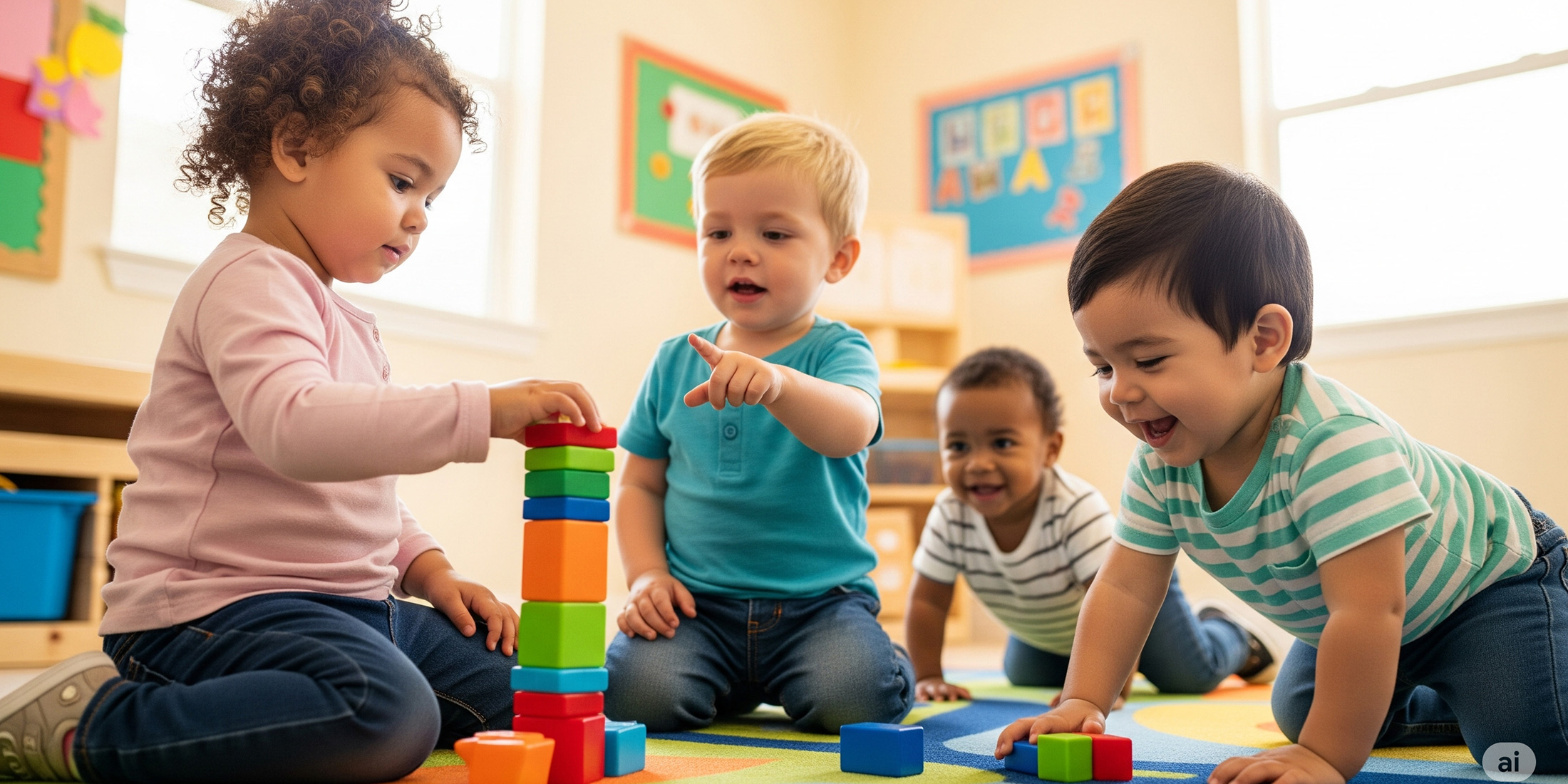
Tiny Humans, Big Lessons: Social Skills in Toddlers and Why Group Interaction Matters
Toddlerhood, a whirlwind of wobbly walks, babbling conversations, and boundless curiosity, is a period of intense development across all domains. While we often marvel at their burgeoning language skills and gross motor achievements, their social development during this time is equally, if not more, crucial. Interacting with peers in a group setting isn’t just about playdates; it’s the fertile ground where essential social skills take root and begin to blossom, shaping their ability to navigate the social world throughout their lives.
The Building Blocks of Social Savvy
Social skills aren’t innate; they are learned and refined through interactions. For toddlers (roughly between 1.5 and 3.5 years old), group interaction provides the perfect laboratory for experimenting with these foundational skills:
Sharing and Turn-Taking: These are often among the earliest social lessons. In a group, a toddler learns that desired toys might be in someone else’s hands and that waiting their turn is often necessary. While these concepts take time to grasp, repeated exposure in a group setting helps solidify understanding.
Communication and Language Development: Interacting with other children provides authentic opportunities for toddlers to practice their burgeoning language skills. They learn to express their needs, ask for toys, and respond to others’ communication attempts. Observing peers also exposes them to different language styles and expands their vocabulary.
Empathy and Understanding Others’ Feelings: Observing the reactions of other children – a peer crying because they fell, another laughing with joy – helps toddlers begin to understand that others have feelings too. While true empathy develops gradually, these early group interactions lay the groundwork for understanding and responding to the emotions of others.
Cooperation and Collaboration: Even simple group activities like building a tower together or rolling a ball back and forth introduce the concept of working towards a common goal. These early experiences with cooperation are fundamental for future teamwork and collaboration.
Problem-Solving and Conflict Resolution: Disagreements over toys or personal space are inevitable in toddler groups. These small conflicts offer opportunities for toddlers to learn how to navigate disagreements, seek help from adults, and eventually develop their own rudimentary problem-solving skills.
Following Social Cues: Observing how other children behave in different situations helps toddlers learn unspoken social rules and expectations. They begin to pick up on cues like personal space, waiting for their turn to speak, and appropriate ways to engage with others.
Why Group Interaction Trumps Solo Play for Social Growth
While individual play is crucial for fostering creativity and independence, group interaction offers unique social learning opportunities that solo play simply cannot replicate:
Real-World Practice: Group settings provide real-time, dynamic social scenarios that toddlers must navigate. This “on-the-job” training is invaluable for developing practical social skills.
Peer Influence: Children often learn from observing and imitating their peers. Seeing another child share a toy or comfort a friend can have a powerful impact.
Diverse Perspectives: Interacting with children from different backgrounds and with different personalities exposes toddlers to a wider range of social behaviors and communication styles.
Motivation for Interaction: The desire to play and engage with peers often motivates toddlers to overcome shyness or communication challenges.
Fostering Group Interaction in Toddlers
Parents and caregivers can actively support toddlers’ social development through group interaction:
Arrange Playdates: Regular playdates, even short ones, provide valuable opportunities for interaction.
Enroll in Parent-Toddler Programs: These programs offer structured activities that encourage social engagement in a supportive environment.
Visit Parks and Playgrounds: Public spaces provide natural opportunities for spontaneous interactions with other children.
Model Positive Social Behavior: Children learn by watching you. Demonstrate sharing, empathy, and respectful communication in your own interactions.
Guide, Don’t Intervene Too Quickly: Allow toddlers to attempt to resolve minor conflicts on their own, offering guidance only when necessary.
Celebrate Social Milestones: Acknowledge and praise your toddler’s efforts to share, take turns, or be kind to others.
Nurturing Social Butterflies
Developing strong social skills during toddlerhood lays a critical foundation for future success in relationships, school, and life. By providing ample opportunities for positive group interaction, we empower our little ones to become confident, empathetic, and well-adjusted individuals who can navigate the complexities of the social world with grace and understanding. These early social experiences are not just about play; they are the vital lessons that shape the fabric of their future connections.
